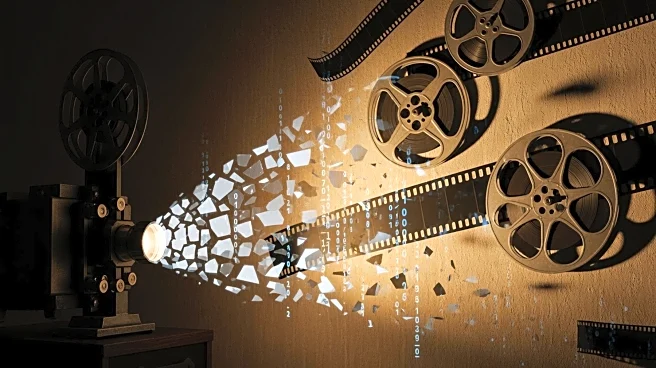What's Happening?
A new book titled 'The Martians: The True Story of an Alien Craze that Captured Turn-of-the-Century America' by David Baron explores the fascination of Progressive-Era Americans with the possibility of communicating with Martians. The book delves into the historical context of the late 19th and early 20th centuries, a time when technological advancements fueled optimism about the future. Figures like balloonist Leo Stevens and astronomer David Todd attempted to communicate with Mars, driven by the belief in Martian civilization, largely popularized by astronomer Percival Lowell. Lowell's claims of artificial canals on Mars captivated the public, despite skepticism from the scientific community.
AD
Why It's Important?
The book sheds light on a unique period in American history when the public's imagination was captured by the possibility of extraterrestrial life. This fascination with Mars reflects broader themes of human curiosity and the impact of scientific speculation on popular culture. The 'Mars craze' influenced various aspects of society, including literature, entertainment, and advertising. Understanding this historical phenomenon provides insight into how scientific ideas can shape cultural narratives and public perception.
Beyond the Headlines
The Martian mania of the Progressive Era highlights the interplay between science and society, illustrating how scientific claims, even when speculative, can inspire cultural movements. The book also raises questions about the role of media in amplifying scientific ideas and the responsibility of scientists in communicating their findings. This historical case study may offer lessons for contemporary discussions on science communication and public engagement with scientific topics.











